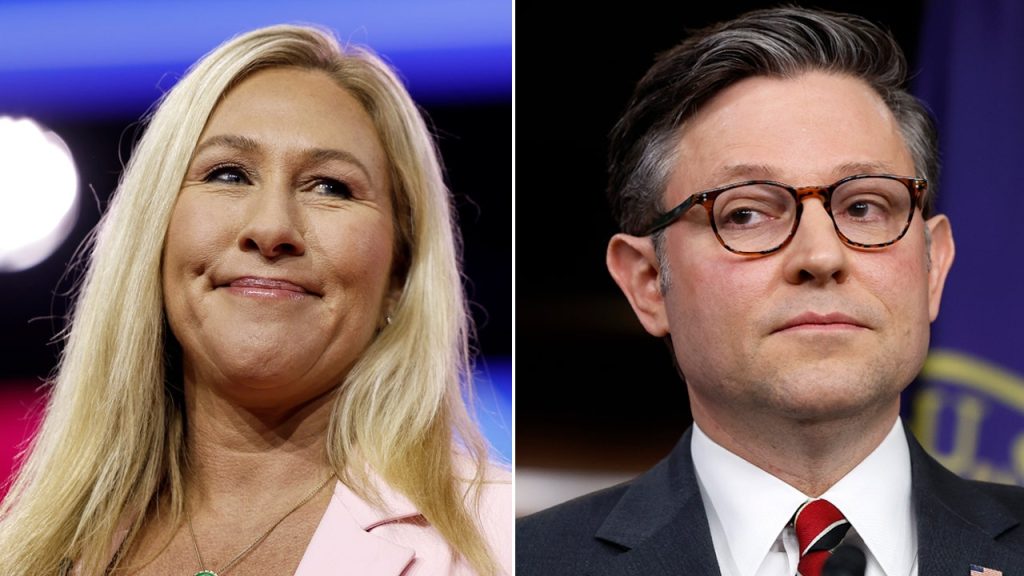The upcoming House Speaker vote presents a complex and potentially precarious situation for Rep. Mike Johnson, who faces both internal Republican divisions and the necessity of securing a narrow majority. Despite previous opposition, Rep. Marjorie Taylor Greene has pledged her support, emphasizing the need for party unity over individual grievances. This shift in allegiance underscores the Republican party’s attempt to present a cohesive front and deliver on their perceived mandate from the American public. However, this unity remains fragile, as evidenced by Rep. Thomas Massie’s adamant refusal to support Johnson, echoing the lingering resentment and distrust within the party.
This internal conflict highlights the delicate balance Johnson must strike to secure the speakership. While Greene’s endorsement signifies a potential bridge across previous divides, Massie’s opposition serves as a stark reminder of the deep-seated fractures within the Republican caucus. These contrasting stances underscore the challenge Johnson faces in unifying a party grappling with differing ideologies and priorities. The struggle to consolidate support within his own party raises questions about his ability to effectively lead the House and navigate the complex political landscape.
Adding another layer to the equation is the endorsement of former President Donald Trump, who threw his weight behind Johnson, characterizing him as a “good, hard working, religious man.” Trump’s endorsement, while potentially influential among certain segments of the Republican base, doesn’t guarantee a smooth path to victory for Johnson. The diverse reactions within the Republican party – from Greene’s newfound support to Massie’s unwavering opposition – demonstrate that Trump’s influence, while significant, is not absolute. The endorsement might solidify support among some Republicans, but it also risks alienating others, further complicating Johnson’s quest for the gavel.
The precarious nature of Johnson’s bid for speakership is further underscored by the specific voting rules. Securing a majority of all votes cast for a named candidate is crucial, leaving little room for error. Even a small number of dissenting Republicans, like Massie, could derail Johnson’s chances, especially in a closely divided House. This narrow margin for victory amplifies the importance of each individual vote and highlights the vulnerability of Johnson’s position. The potential for a stalled vote and multiple rounds of balloting looms large, injecting further uncertainty into the process.
The complexity of the situation is further exemplified by the commentary from Fox News Senior Congressional Correspondent Chad Pergram, who outlined a scenario in which Johnson could fall short of the required majority despite near-unanimous Republican support. This underscores the razor-thin margin for error and the potential for a surprising outcome even if most Republicans intend to vote for Johnson. The possibility of a deadlock raises concerns about the stability of the Republican leadership and its ability to govern effectively. The upcoming vote will serve as a crucial test of Johnson’s ability to navigate these challenges and unite a fractured party.
Despite the challenges, Johnson remains optimistic, expressing confidence in securing the speakership in the first round of voting. This optimism, however, clashes with the stark reality of the deeply divided Republican caucus and the precarious mathematics of the voting process. Whether Johnson can translate his confidence into actual votes and successfully bridge the divides within his party remains to be seen. The upcoming vote promises to be a dramatic and revealing moment, exposing the internal dynamics of the Republican party and setting the stage for the future of the House leadership.

